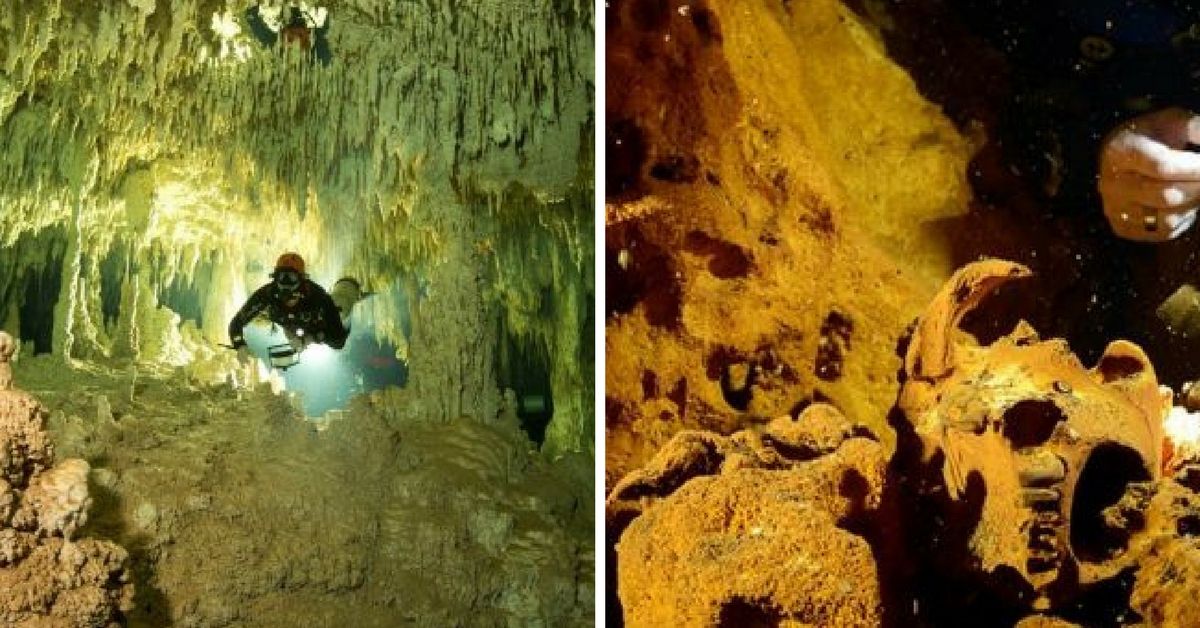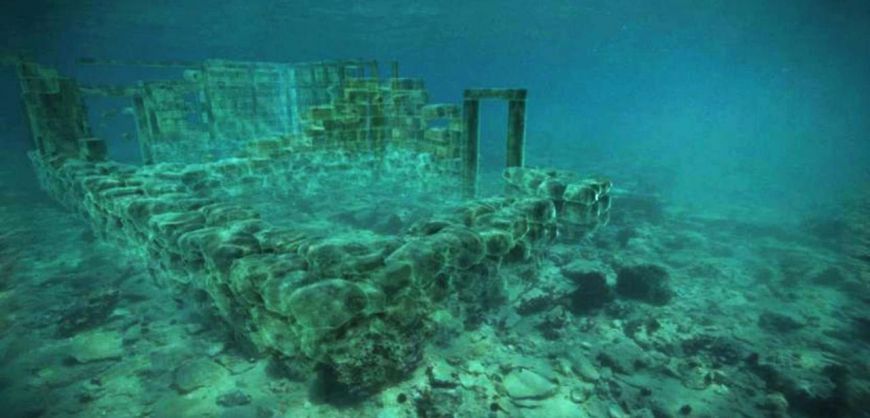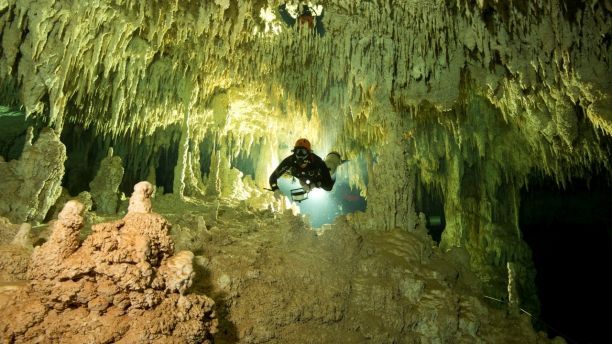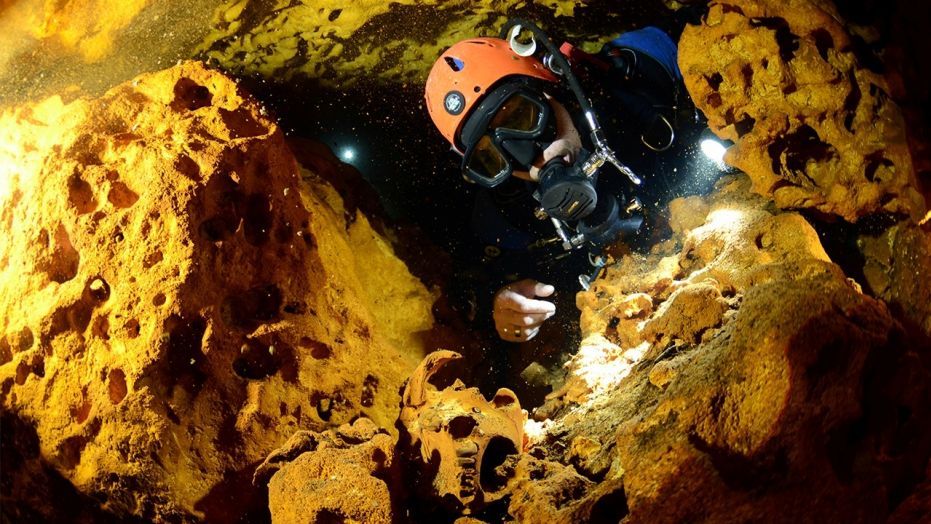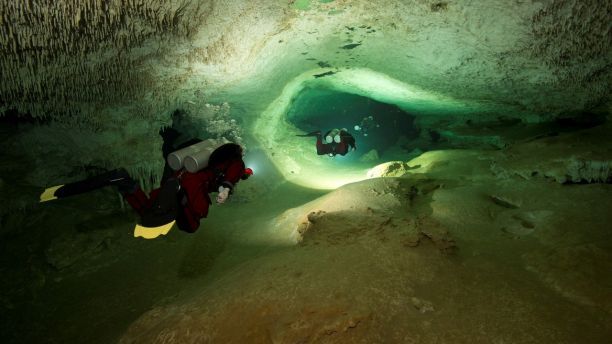Divers have spent months exploring more than 200 small caves in the Yucatan peninsula, which they now believe to be the world's largest-known underwater cave.
The discovery of this 216-mile-long cave system is amazing on its own, but what they found hidden in the walls is believed to help scientists to solve a 500-year-old mystery.
The world's oceans make up approximately 70% of this planet, so it makes sense that they're a ton of secrets and clues to our past that have not been discovered.
It's also estimated that only 5% of the oceans have been explored, and what we've found in these deep, dark waters have already been super intriguing.
Take for instance the ancient underwater city of Pavlopetri off the southern coast of Greece. One marine geo-archaeologist discovered this thousand-year-old port town in the 1960s. They found pottery that gave clues to how humans evolved.
In eastern Mexico, underwater archaeologists traversed two linked caverns, known as Sac Actun and Dos Ojos, and found artifacts from an ancient civilization that hints at a mystery we've been trying to solve for centuries.
The cave houses hundreds of Mayan relics, and sheds light on how the Mayan civilization evolved.
"Without a doubt, it's the most important submerged archaeological site in the world," Guillermo de Anda, the director of the Gran Acuifero Mayan team, said, according to Mexico Daily News.
"We've recorded more than 100 archaeological elements: the remains of extinct fauna, early humans, Mayan archaeology, ceramics and Mayan graves," he added. "It's also very significant that this discovery enables us to see the possible patterns of past settlement. From the Pleistocene through to the ancient Mayans and up to the colonial era, they developed parallel to this enormous flooded fresh-water cave."
The discovery holds clues to the development of the rich culture of the region, before the Spanish conquest dominated over the Mayan civilization.
"It allows us to appreciate much more clearly how the rituals, the pilgrimage sites and ultimately the great pre-Hispanic settlements that we know emerged," de Anda told Reuters.
